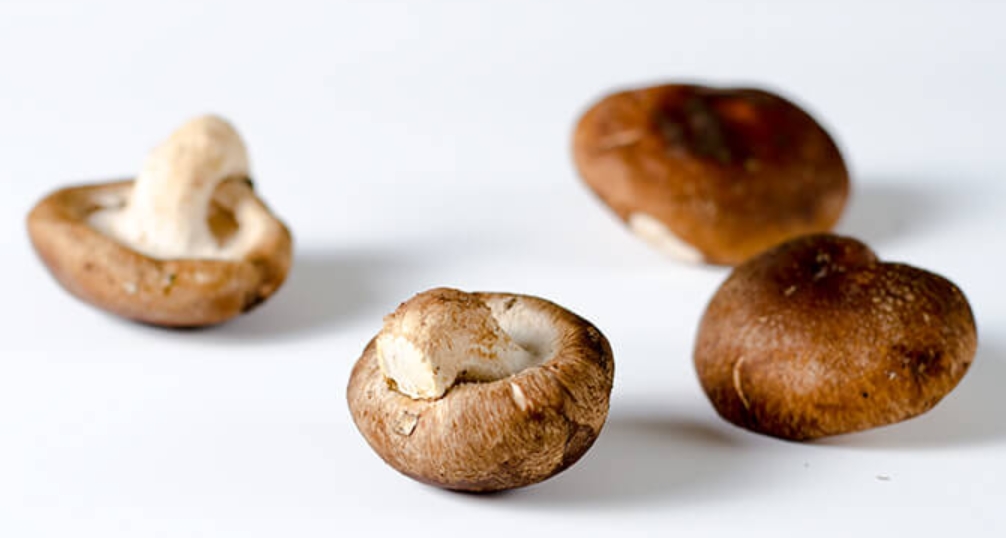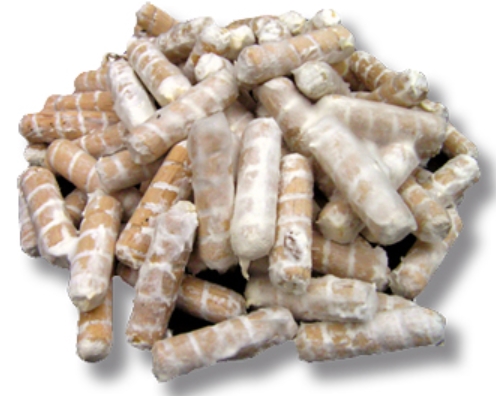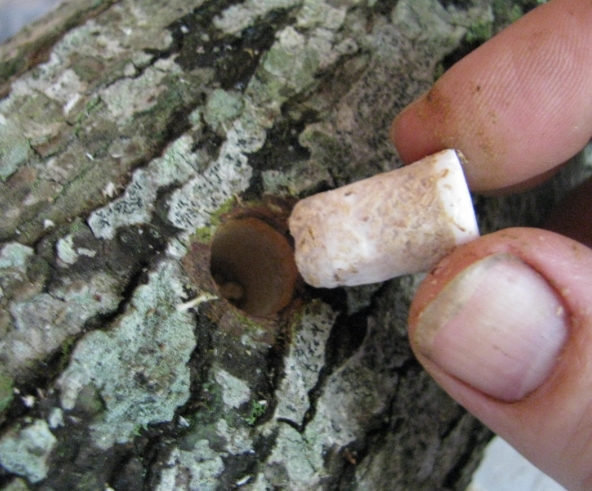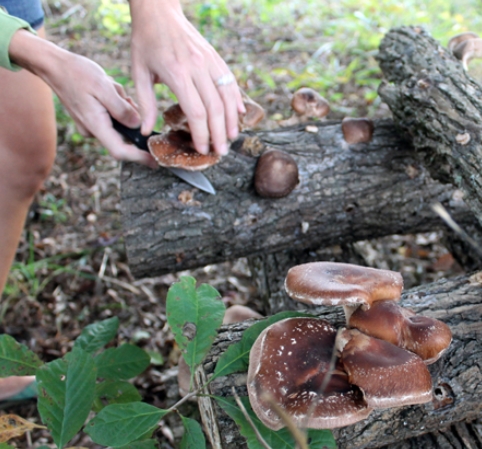
Shiitake mushroom is probably one of your favorite ingredients for preparing the food and you are wondering how to grow shiitake mushroom properly and correctly. You know how well the mushroom blends with other ingredients like filet mignon or lobster. Not to mention that you love the fact that it can be cooked in many flexible ways.
However, there is the price factor that affects your spending whenever you buy the mushroom. Because of this matter, now you are thinking about growing your own shiitake garden so you can cook at your heart desire.
Table of Contents
The Many Functions of Shiitake Mushroom
Shiitake has this nice flavor that just matches well with different kinds of food ingredients and materials. And let’s not forget the health benefits. It is rich in vitamin B and protein. It is low in calories so you won’t have to worry about weight gain or whatsoever.
It also affects the serum cholesterol by reducing the production. The mushroom has this nice savory flavor that will elevate your cooking to a higher star-quality level.
Shiitake mushroom has been grown in Japan commercially and the practice has been running for centuries. In the past, growing shiitake in America was banned because the mushroom is considered lignicolous. It means that the mushroom lives and strives on wood and takes the nutrients from cellulose and lignon of the wood.
The Americans were afraid that the fungus could spread out of control and created havoc on the wooden structures and railroad ties. This theory was proven to be incorrect and false. And now, the practice of growing the shiitake is even encouraged because it is proven to be financially beneficial.
Learning how to grow shiitake mushroom isn’t as difficult as everyone thinks. In fact, the mushroom is easy to grow –even when compared to other types of mushrooms. This is the mushroom that is just perfect for beginner mushroom grower. Not to mention that you won’t need to spend a lot of money for farming and yet you can get a lot of produce in the end.
The Preparation
Traditionally, shiitake is grown outdoors and it happens on the seasoned hardwood logs. The most favorable wooden type is oak but it is also possible to use ash, hickory, beech, aspen, alder, poplar, birch, and maple.
The spawn of the shiitake won’t survive or grow well in green or live wood, deadfall wood, and other stocks that have been contaminated by fungi or lichens. That’s why you should cut the logs for the mushroom cultivation from newly trimmed limbs or freshly felled trees.
In the event that you are able to get fresh logs, go with the healthy ones. They should be disease-free and they aren’t colonized by other mushrooms. Go with the small trees so you can manage and handle it easily. Choose the ones with a diameter between 4 inches and 6 inches. Feel free to go with the bigger ones but it would affect your back and your efforts in the handling. You see, the logs would be moved, stacked, and soaked often. If you cut the logs too big, you would hurt your back and have sores all over the body.
Be ready to cut the logs in specific lengths – around 3 feet to 4 feet – so the logs would be easy to stack and handle. Go with the ones with full and intact bark. The bark plays a vital role in the growing cycle, especially in retaining moisture and successful growth.
If the bark is too dry, the logs will stop producing and your mushroom is failing. The bark should be intact because the only hole or break within it should be the one you drill (to have the dowel plugs). But even the hole should be easily covered with the wax so the moisture remains well preserved.
The Mushroom Spawn

There are some ways to start growing the mushroom. The easiest way is to have the mushroom spawn which is basically a substrate colonized with Shiitake mycelium. It is generally available as the sawdust spawn or the plug spawn. The easiest one is the plug spawn although the sawdust spawn is generally cheaper but the planting process is quite complex and tricky.
Basic requirements on how to grow shiitake mushroom
- Hardwood logs that have the diameter between 4 and 6 inches and with 3 to 4 feet in length
- Cordless electric drill
- Food-grade safe wax like refined mushroom wax, beeswax, or cheese wax
- Drill bit stop collar
- Paintbrush or dauber (so you can apply the wax)
- 5/16 inch of drill bit
- 100 spawn plugs for every two or three logs
How to inoculate the hardwood logs with the mushroom
- Drill the holes with the inoculation of the spawn
- Drill an inch deep of hole. That’s why you need the stop collar so you know the exact depth of the drill. If it is too deep, the dowel plugs won’t effectively colonize the log. But if it is too shallow, the plug can’t seat fully to the log and they will dry out.

- Drill within 10-inch of intervals with 2 inches of row apart. You can stage the row with a diamond pattern. With this method, you can colonize the whole log without making excessive waste. If you over-inoculate the logs, you will spend extra. But if you are doing under inoculation, it can leave any opening and other fungus can infiltrate.
- When the holes are fully drilled, place the dowel plug. Use a soft rubber mallet so you can tap it into the hole gently. If you don’t have the rubber mallet, you can use the regular hammer but don’t use it too strongly. Remember, if you use excessive force, it will damage the bark and it can dry the crop.
Once you have put the plugs into the hole, seal it with the wax. If you don’t know where to start, you can buy a special kit sold by the mushroom supply producers. If you choose the kit, you can get the shiitake plugs and the wax so you won’t have to go into trouble to start the grow.
Caring for the Logs
Once the logs are prepared and ready, you need to shelter them from the wind or the sun. Make sure that you choose a shaded area with easy access to the hose. Keep in mind that fungus requires enough moisture to grow and they should be in a humid place.
If you live in dry areas, use the sprinkler to have a weekly watering arrangement. If you have a body of water, you can drop the logs to the water for several hours so they will remain moist. But skip this step if your place has a regular rain.
If your logs start producing fungus, it means that you are doing a good job. But be careful of slugs. You can keep ducks to keep the slugs away but the ducks may create more damage to your garden even if you can manage the slugs’ population down.
You can circle the logs within a (thick) ring of wood ash that is 3to 4 inches wide. Wood ash is actually made from the leftover salts after burning – which is different from the table salt. The latter one will hurt the woodland ecology or the soil while the previous one won’t. If you want to naturally prevent the slugs, the wood ash can be a great alternative. This is also one crucial thing to remember about how to grow shiitake mushroom properly.
The Harvesting
When the logs have been colonized, you can soak them so it would induce fruiting. When you have soaked the logs, you can lean them against something so easy monitor can be achieved. The leaning will also help with the easier harvesting process.

After the fruiting moment has ended, you can stack them again like piles. If the fruiting process is successful, the mushroom will break the log surface. Once it happens, you can easily break them by hands. You can either dry them in the sun or use them fresh.
The production will begin within 8 months to 16 months after the inoculation process takes place. You can expect a pound of mushroom for each log on an annual basis – and it can go up to 8 years of production and harvest. The mushroom itself can be sold for around $10 a pound. The price of 100 spawn plugs in a single bag costs around $10 – and a bag can be used to inoculate 3 logs roughly. You can basically produce around $240 a year if you do it right (it is in minimal pricing calculation).
Final Words
Bigger manufacturers would save up money by using sawdust spawn and perform large-scale planting. But in general, the biggest investment for the planting is the time –time for the wait and time for sorting, watering and moving the logs.
If you are doing this for fun and simply to pass the time, the fruitful outcome can be financially rewarding as well as fun. Now that you already know how to grow shiitake mushroom, are you interested in having the garden?



